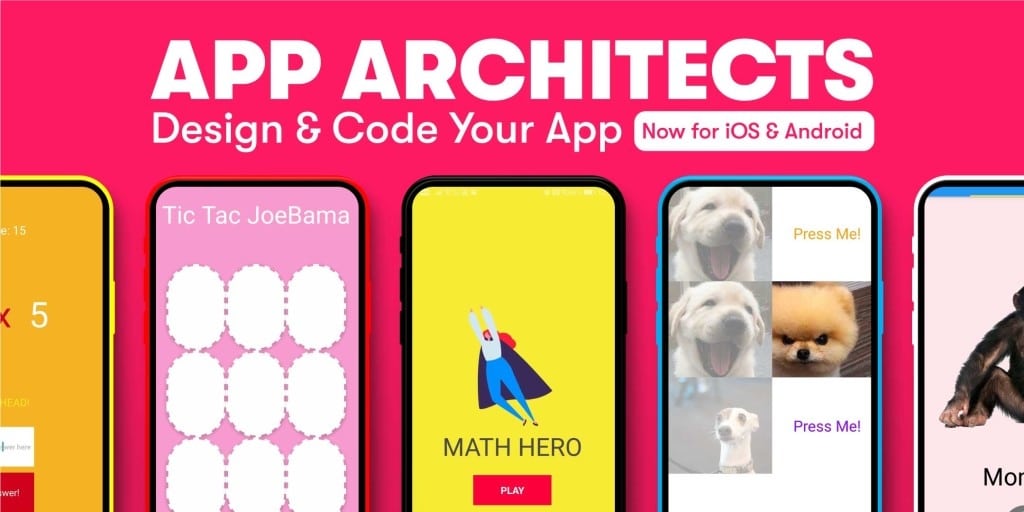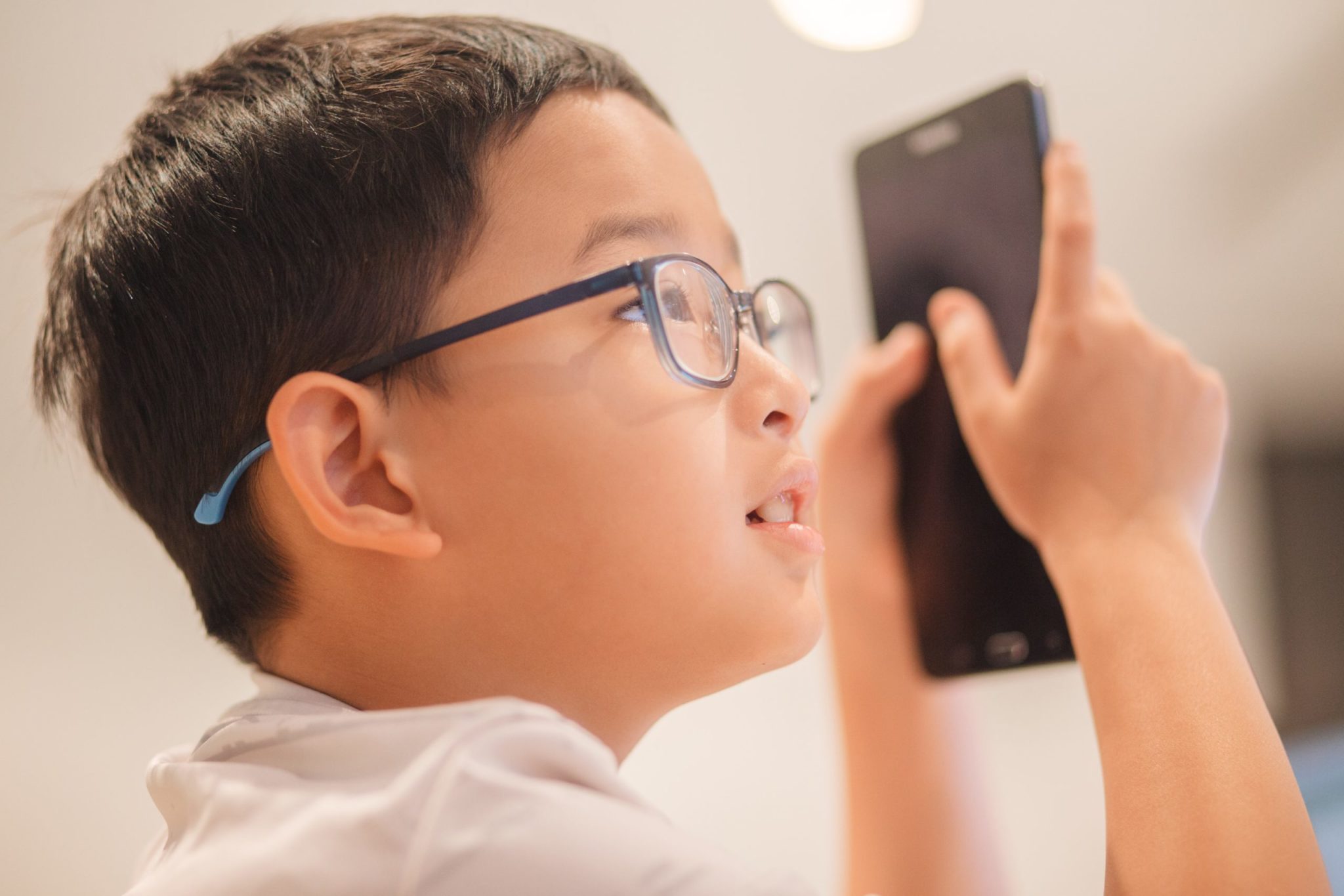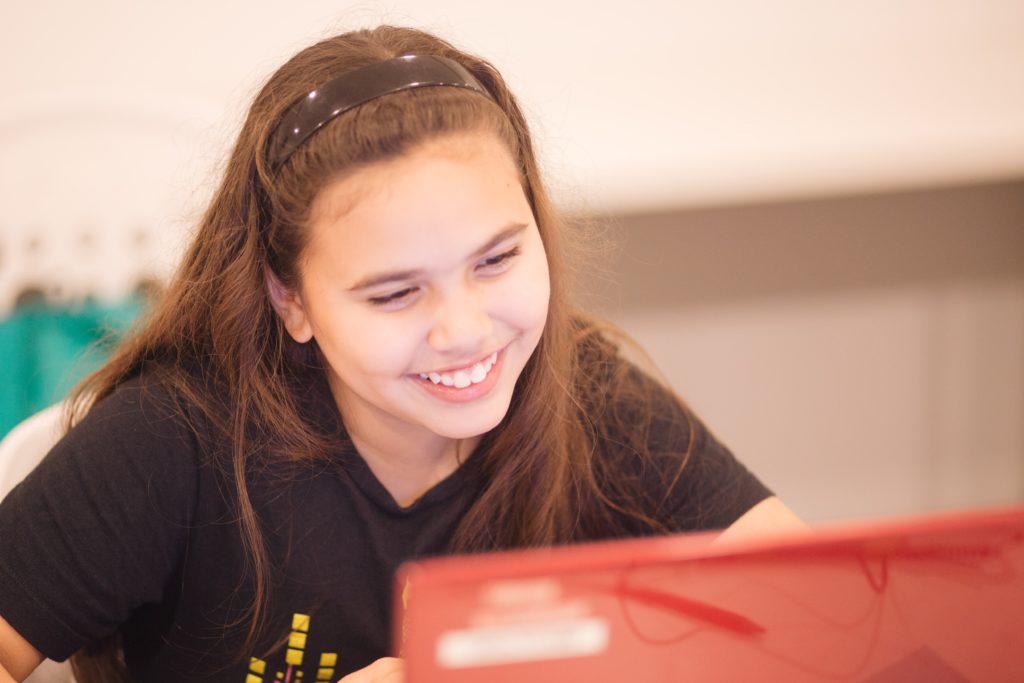From App Users to App Architects – What Kids Learn When They Make Their Own App
August 8, 2019

What do kids learn when they make their own mobile app at Saturday Kids? Aside from solid technical skills, a whole lot of creativity, design, and empathy.
As important as technical skills are, it shouldn’t come as a surprise that soft skills and lateral thinking are equally, if not more critical for young people growing up in a VUCA future. And that’s what we want kids ages 11-14 to learn in our new course App Architects: Design & Code Your Own App, which shifts kids from being consumers to human-centered creators of their very own mobile apps.

Over the course of 5 days, kids learn what makes a good mobile app across iOS and Android, understand how apps have changed the world while simultaneously adapting to it, and practise building different kinds of apps for diverse users using Thunkable, before going on to design and code their very own mobile app that they present to their friends and family on the last day of class.
Rocket launcher and course owner Huda – who’s also an artist, Mom, and helps to runs non-profit organisation The Codette Project, which creates access to tech careers for minority women – explains the breadth and depth of what kids learn from this process:
“Typically in app-making, there are separate roles for separate functions; there’s no one man show. But in App Architects, kids learn a bit of everything using Thunkable – user interface design, user experience, and valuable programming skills – essentially taking on 3 different roles.”
Citing the example of a teenager who created an app, Vegan Alternatives, to help vegans find food substitutes using Thunkable, Huda is excited about the potential of App Architect to teach kids about programming in an accessible, tangible way that opens doors for them to make a real world impact. “If you really want to revolutionise the world, Thunkable can make that possible.
“This course encourages kids to step into the shoes of others who might be different from them and go through the process of understanding their users, defining the purpose of what they’re building, and design their app based on those considerations.”
Given the amount of time many kids spend in front of screens – whether it’s a computer, television or mobile phone – as with any activity or hobby, the quality of screen time matters as much as its quantity. Technologists like John Naughton have cautioned users against being “passive consumers of closed devices and services, leading lives that are increasingly circumscribed by technologies created by elites working for huge corporations… breeding generations of hamsters for the glittering wheels of cages.”* The flipside of this is that digital literacy and leveraging technology creatively can be immensely empowering and critical for kids who have to navigate a VUCA world increasingly shaped by design agendas that users may be impervious to.
As Huda explains, “More often than not, kids are consumers of their phones and on the front end of interactions. Being able to take ownership of what they build makes a huge difference – they learn first-hand that every product in the world was designed with a user in mind; nothing is random, whether it’s font size or the placement of elements. Aside from learning to build apps, the next time they interact with an app they’ll understand that things don’t just exist for the sake of it and everything is engineered with intention.”
As creators, the potential for kids to change the world through tech is limitless, and learning to architect an app is a great place to start. It’s the apps that have made simple but significant improvements to its users lives for the better that inspire us: apps like Forest which encourages users to reduce their tech dependence, gamifying the process by planting actual trees on their behalf as an incentive for unplugging, and Be My Eyes which connects visually-impaired people with volunteers around the world who offer visual assistance.
At Saturday Kids, we believe kids are inventing the future – and we can’t wait to see what they’ll come up with. Programming aside, the key takeaway for kids from App Architects, says Huda, is about empathy and applying it through user interface and user experience.
“When you see something you build that integrates STEM concepts you learn in school, learning becomes no longer just about results or grades, but about creativity and wonder – it’s something kids can take ownership of and say, ‘I made it’.”
…
App Architects: Design & Code Your Own App is open to all kids ages 11-14, with no prerequisites. Check out our schedule to book your spot right here.
Got questions? Email us at hello@saturdaykids.com and get ’em answered!
* We recommend this read by John Naughton about why all kids should be taught to code here.


